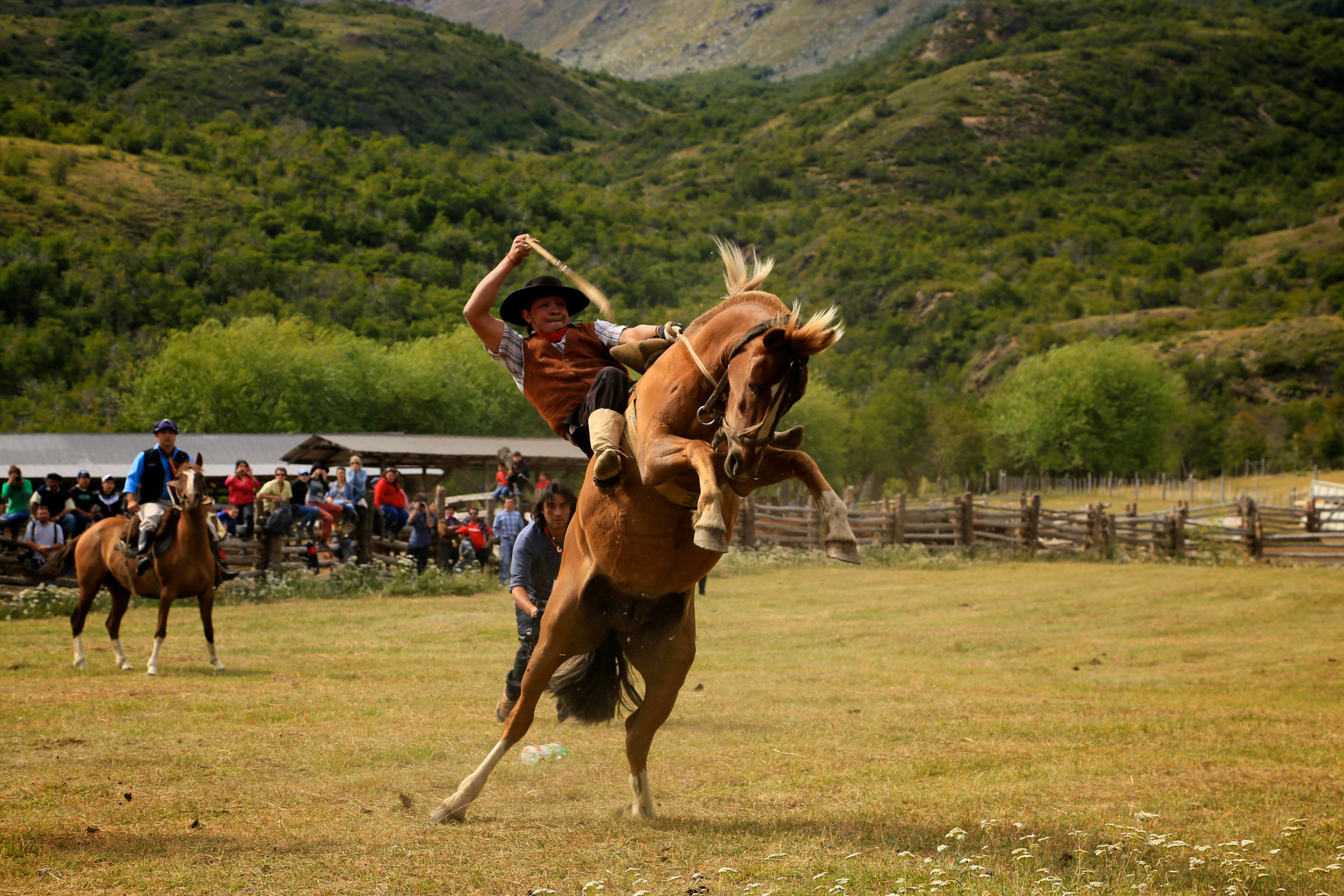Space-Time traveling in Patagonia
by Karel Mundnich
In January 2014, I embarked on a month-long trip to the southernmost tip of South America: Chilean Patagonia. My journey began with these words:
El que se apura en la Patagonia, pierde su tiempo.
One who hurries in Patagonia, loses his time.
It’s a common saying– one I would see again and again throughout my trip. I first read it printed on a waitress’ T-shirt in the city of Coyhaique, several hours’ flight south of my home in Santiago. It’s a saying that represents the spirit of Patagonia, if only you take the time to look.
I grew up in Santiago’s urban vastness, where I studied electrical engineering. The field shaped my thinking; it turned my mind into a filter, always looking for new ways to optimize a process or to better utilize resources to increase human wellbeing.
In Patagonia, this filter of mine was focused on energy. In the Aysén region where I traveled, local people use wood as fuel for cooking and heating. But wood is costly and difficult to produce. Why not utilize hydroelectric power instead, like many other remote areas of Chile have already done?
Patagonia is a wet place. Many towns receive more than 1000 millimeters of rainfall each year. All that rainwater could be used to produce electricity, by being harvested and then used by mini hydroelectric plants. The plants, which work by converting the potential energy of water into electricity, would bring clean and renewable energy to Aysén.
But the hydroelectric plants are unpopular in Patagonia. Ironically, although water is abundant, electricity is more expensive here than anywhere else in Chile.
Why is hydroelectric power so unpopular, I wondered.
The problem became even more evident in Caleta Tortel, a village of 500 in the south of Aysén, where the Andes meets the Pacific Ocean. Homes in Caleta Tortel have access to electricity for just 3 hours per day, although their annual rainfall is a sopping 1800 millimeters. It didn’t add up to me. Wouldn’t local people work more efficiently and have a higher quality of life with more electricity, generated by hydroelectric power?
But Patagonian culture is unlike mine. It has been forged around the weather, traditions, and a respect for the past.
I think this is embodied best in the huge wood-burning stoves, which sit proudly in every kitchen. Families and friends gather around the warmth of these stoves, making kitchens the main living space of the house. Without the centrality of wood as fuel, and wood-burning stoves as the centerpieces of home life, Patagonian culture would face unwelcome change.
Some Patagonians do support the idea of development though. I spoke to the former mayor of the town of Chile Chico, who was born in Santiago but had lived most of his life in Patagonia. He had tried to convince the population about the benefits of hydroelectric development to no avail. He believed that hydroelectric power could protect Patagonian forests from being chopped and burned for wood fuel, preventing erosion while simultaneously lowering electricity prices in the region.
The former mayor was devoted to the replacement of the old wood-fueled stoves with state-of-the-art electrical kitchens and heating systems. But his efforts were futile. The people refused to change their landscape.
I expected the people of Patagonia to share my electrical engineer’s perspective and pro-technology attitude. I thought they would welcome energy efficiency and development. But in fact, our mindsets couldn’t have been more different.
Most locals are descendants of the original settlers in Chilean Patagonia, and seek to maintain their traditions. My technology-driven expectations hit a wall built by their culture, their traditions, and their remoteness. Patagonia’s inhabitants take pride in the calm of their lives; they prioritize simple pleasures over the frenzied advance of technology.
One who hurries in Patagonia, loses his time.
The people of Patagonia have learned to embrace isolation, and to enjoy the calmness of a life far from development. Their afternoons are spent with family and friends around the warmth of a wood-burning stove. My time in Patagonia forced me to question my thinking, and opened my eyes to prioritization of slowing down.
Karel is an electrical engineer and a travel/photography/yoga enthusiast. Reach him at kmundnic@ing.uchile.cl, and visit his photography portfolio in 500px.com/kmundnic.







